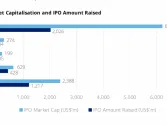
New hedging standard to require more disclosures
But accounting will be simpler.
In a release, the International Accounting Standards Board (IASB) has announced a package of amendments to the accounting requirements for financial instruments. It includes a final hedge accounting standard, making a complex area of accounting a little bit simpler.
Commenting on the publication of the final standard, Dr Nigel Sleigh-Johnson, Head of ICAEW’s Financial Reporting Faculty, said: “Hedge accounting is arguably one of the most complex areas of accounting. The current hedge accounting standard is rules-based, is difficult for companies to use and does not reflect risk management activities well, so it was ripe for replacement.
“With the new standard, hedge accounting – which is a way for companies to reduce volatility in their reported results stemming from, for example, foreign currency exposure, and is widely used by both financial and non-financial companies – should become more accessible, allowing companies to better align their accounting with their risk management strategies.”
The new standard will require more disclosures because it is more principles-based than the standard it replaces. That brings with it some challenges in itself, and highlights the difficulties involved in reducing the length of IFRS financial statements.
Nigel comments: “More judgement means an increased need for disclosures. That may be a challenge for some. What is critical is that the longer disclosures don’t result in key information becoming obscured.”
The hedge accounting standard is part of IFRS 9, which will replace IAS 39, the accounting standard that received so much attention in the wake of the global financial crisis. IFRS 9 is not yet complete however, as there are still deliberations on impairment going on.
Nigel said: “Replacing IAS 39 has proved a much slower and tougher task for the standard setters than originally thought. That has been a source of huge frustration. They are not there yet, but the hedge accounting standard is an important strand of what has become a rather tangled and complex web of much-needed financial reporting reforms”.
















